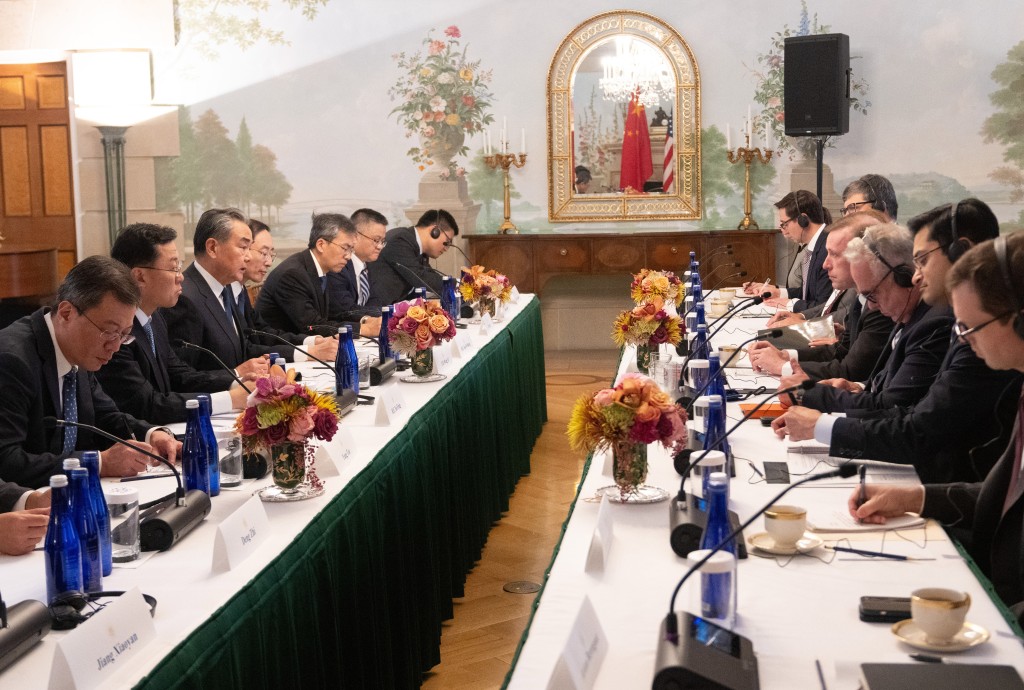
Wang Jisi, Professor at School of International Studies and Founding President of Institute of International and Strategic Studies, Peking University
Nov 18, 2023
The China-U.S. relationship is not going to rise from its low point anytime soon. An election year is approaching in America, and it will be fraught with anti-China rhetoric. With few opportunities for the leaders to meet and set a new course, the upcoming APEC leaders meeting in San Francisco will be pivotal.
Ma Xue, Associate Fellow, Institute of American Studies, China Institutes of Contemporary International Relations
Nov 10, 2023
Constructive progress on the diplomatic front is a positive development, but China and the United States are nevertheless experiencing some growing challenges. But exaggerating the competitive aspects of the relationship could be misleading.

Zhao Minghao, Professor, Institute of International Studies at Fudan University, and China Forum Expert
Nov 10, 2023
If presidents Xi Jinping and Joe Biden can meet this month, getting China-U.S. ties back on the rails will get a much-needed boost on the order the their Bali meeting. The current international scene is chaotic, and China-U.S. relations are at a critical crossroads. The two sides must learn to co-exist and cooperate.

Nicholas Burns, Ambassador of the United States of America to the People’s Republic of China
Nov 10, 2023
Click to watch the videoLadies and gentlemen, greetings from Beijing!My name is Nick Burns, I am the American Ambassador to the People's Republic of China. My t

Xie Feng, Chinese Ambassador to the United States
Nov 10, 2023
It is a great pleasure to revisit Hong Kong virtually and join friends, old and new, online at the Hong Kong Forum on U.S.-China Relations to discuss the bilateral relationship and explore the path forward.
Stephen Roach, Senior Fellow, Yale University
Nov 03, 2023
All eyes are on the upcoming leaders’ meeting of the Asia-Pacific Economic Cooperation (APEC), to be held in San Francisco from November 11-17. And with good reason: there is a distinct possibility that US President Joe Biden and Chinese President Xi Jinping will meet on the sidelines of this pan-regional gathering, exactly one year after their last summit in Bali on the eve of the annual G20 summit.

David Shambaugh, Gaston Sigur Professor and Director of China Policy Program at George Washington University, Distinguished Visiting Fellow at Hoover Institution of Stanford University
Nov 03, 2023
China’s Foreign Minister paid an official two-day visit to Washington last week, laying the groundwork for an anticipated meeting between Presidents Joe Biden and Xi Jinping in November. The two sides had a “constructive” and detailed set of discussions on specific issues, but the most important outcome may be that a normal diplomatic interaction took place after a long hiatus and substantial acrimony in the bilateral relationship.

Li Yan, Director of President's Office, China Institutes of Contemporary International Relations
Nov 03, 2023
More than ever, China and the United States need to meet each other halfway. They need to find new cooperation points in a spirit of mutual benefit. Emerging from the deep freeze presents both an important test and a great opportunity.

Li Zheng, Assistant Research Processor, China Institutes of Contemporary International Relations
Nov 03, 2023
In the wake of Chinese Foreign Minister Wang Yi’s visit to the U.S., windows of opportunity are opening. The constructive attitude on both sides is paying off as common ground is sought to anchor bilateral ties. This is a positive sign for the future.
Josephine Wolff, Assistant Professor, Rochester Institute of Technology
Oct 20, 2023
China’s internet regulations and perceived willingness to mobilize its domestic tech industry for espionage have led to preventative measures being taken by the U.S. in the form of bans and sanctions against Chinese tech.